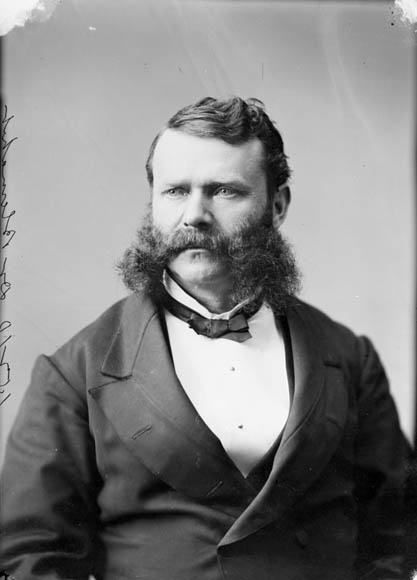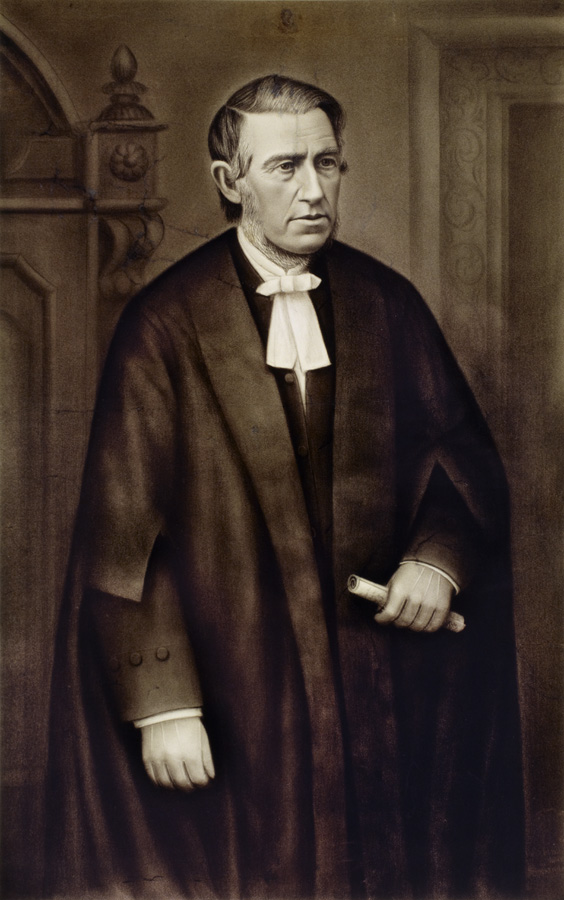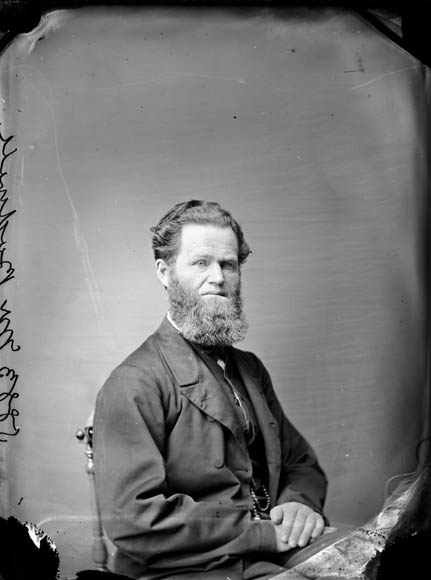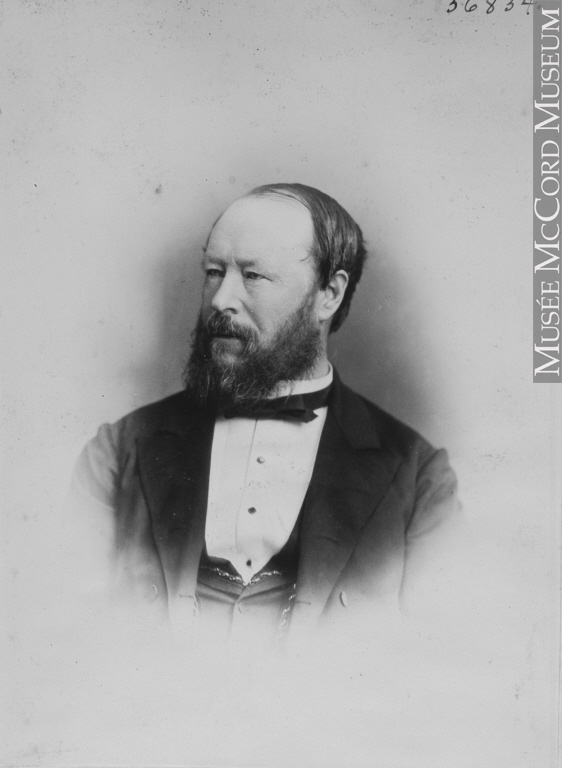GALT REVEALS ALL; BETRAYED BY CABINET; MACDONALD AND GALT HAD FINANCIAL INTERESTS IN COMMERCIAL BANK
In a surprise speech that halted the business of the House of Commons yesterday afternoon, Hon. Alexander Galt, the former finance minister, told the Commons that the reason for his resignation was not entirely of a personal nature as he had earlier told the Chamber, but rather because the Cabinet refused to back his attempts to save the Commercial Bank.
During a lengthy speech that held the rapt attention of members, Galt described in detail how he had travelled back and forth between Montreal, Ottawa, and Kingston attempting to secure the support of both the Government and other banks to keep the Commercial in business.
In explaining why he had not told his story sooner, Galt said that he had not spoken sooner because he did not wish to cause difficulty for the Government in the early days of the Dominion’s first parliamentary session. Galt said he felt compelled to tell his version of events now that the Senate had appointed a committee to investigate the causes of the bank collapse lest his silence result in his shouldering the entire blame for the event.
New facts coming to light from Galt’s statement include:
- The prime minister, Sir John A. Macdonald, is a member of the Board of Directors of the Commercial Bank
- Upon receiving a request from the Bank for assistance in September, Galt told them he didn’t think it was likely that the Government would supply the aid required. When he met with Hon. George-Étienne Cartier (Militia) to take the temperature of the Cabinet, Cartier felt that even in his pessimism, Galt was too optimistic of the chances of success.
- Galt went with the Director of the Bank to Kingston to meet with the prime minister who said the Government would not help the Bank but suggested the Bank of Montreal be approached and that it be communicated to them that the Government desired the Bank be helped. This was how the first $300,000 in assistance to the Commercial Bank was secured.
From this point, the facts relayed by Galt are largely similar to those previously reported, however Galt describes in detail the operations within the Government that have heretofore been secret.
He said that when the Commercial Bank fell into difficulty a second time in October, he had first attempted to secure a second loan from the Bank of Montreal but Edward King, the bank’s general manager suggested that such aid might be better coming from the Government.
On October 17, Galt returned to Ottawa to meet with the prime minister who, Galt said, wanted to help the Bank and was worried that its failure would imperil other banks in the Dominion.
Macdonald suggested Galt see Cartier again who remained opposed to the Government assisting the Bank and offered the proposal that later occupied the final attempts to save the Bank, which was to secure the required assistance from the other Ontario banks.
Galt said he wished to submit the proposal for Government assistance to Cabinet but Macdonald counselled him against it. Galt was unhappy with that but acquiesced to the prime minister’s suggestion and went forward with arranging the meeting of the banks that was held on October 21.
As we know a deal was reached at the meeting but was subsequently killed by the various bank presidents.
At this point, the Commercial Bank directors resolved to turn the affairs of their institution over to the Bank of Montreal.
Galt objected to this on the grounds that doing so might cripple the Bank of Montreal, the institution from which the Government had borrowed large sums of money (at the time the Government had no less than $1,250,000,000 it had borrowed from the bank), and that would interfere with the affairs of Government and that could not be allowed.
With the deal collapsed and no other course open to it, the suspension of the Commercial Bank was decided upon and communicated to both the Cabinet and the other banks.
Following a Cabinet meeting held after midnight on the morning of October 22, the prime minister telegraphed Galt to tell him that the Cabinet had made a final decision not to aid the Bank on the grounds that they did not have enough information to come to a decision in favour of the bank.
Later that day, Galt wrote to Macdonald submitting his resignation, writing:
The grounds state for the refusal of the Government to act, appear to me to imply both censure and want of confidence. As regards the alleged want of information, I must remind you that I went to Ottawa with Mr. Cartwright, the President of the Commercial Bank on Thursday last, for the purpose of submitting the whole case to the Council, and only at your express desire abstained from doing so. The whole slate of facts was then known to you.
If, Galt continued, the Cabinet had desired more information they could have had it at anytime. Galt continued:
Had the Government seen fit to rest their decision upon the want of proper authority, or the inconvenience of establishing precedent, I might have consented to share the responsibility of this action; but I must decline to do so upon the grounds stated in your telegram. I have, therefore, only to place my resignation in your hands, and to request that you will submit the same to His Excellency, the Governor-General.
After receiving the letter, Macdonald asked Galt to come to Ottawa. Galt had, Macdonald said, misunderstood the actions of the Government. Galt refused saying any explanation had to be in writing. At this point, Macdonald hired a private train and travelled to Montreal to meet with Galt, telling him that the Cabinet had not been trying to blame him for the Bank’s collapse.
Galt was intent on staying to his course of resignation but relented when it was learned that runs had now started on other banks in Ontario and that the resignation of the finance minister would spark a full-fledged financial crisis.
The indignities placed upon Galt did not subside, however, as a telegram went out signed by John A. Macdonald, advising that Government would receive the notes of all banks. The intention was to demonstrate the Government’s confidence in the Banks but had the effect of demonstrating, in Galt’s eyes, that the Government was pursuing a course different from that suggested by him, the Minister of Finance.
From here, Galt once again resolved to leave the cabinet once he had received the written support of Macdonald.
It was extraordinary, Galt said, that there should ever have been any suggestion made that he had sought to bring about the failure of Commercial Bank. But given that it had, and owing to his own financial interest in the bank, allowing such questions to be raised on the eve of the meeting of Parliament “would have shown himself a fitting candidate for a lunatic asylum.”
With this he left the Cabinet.




















